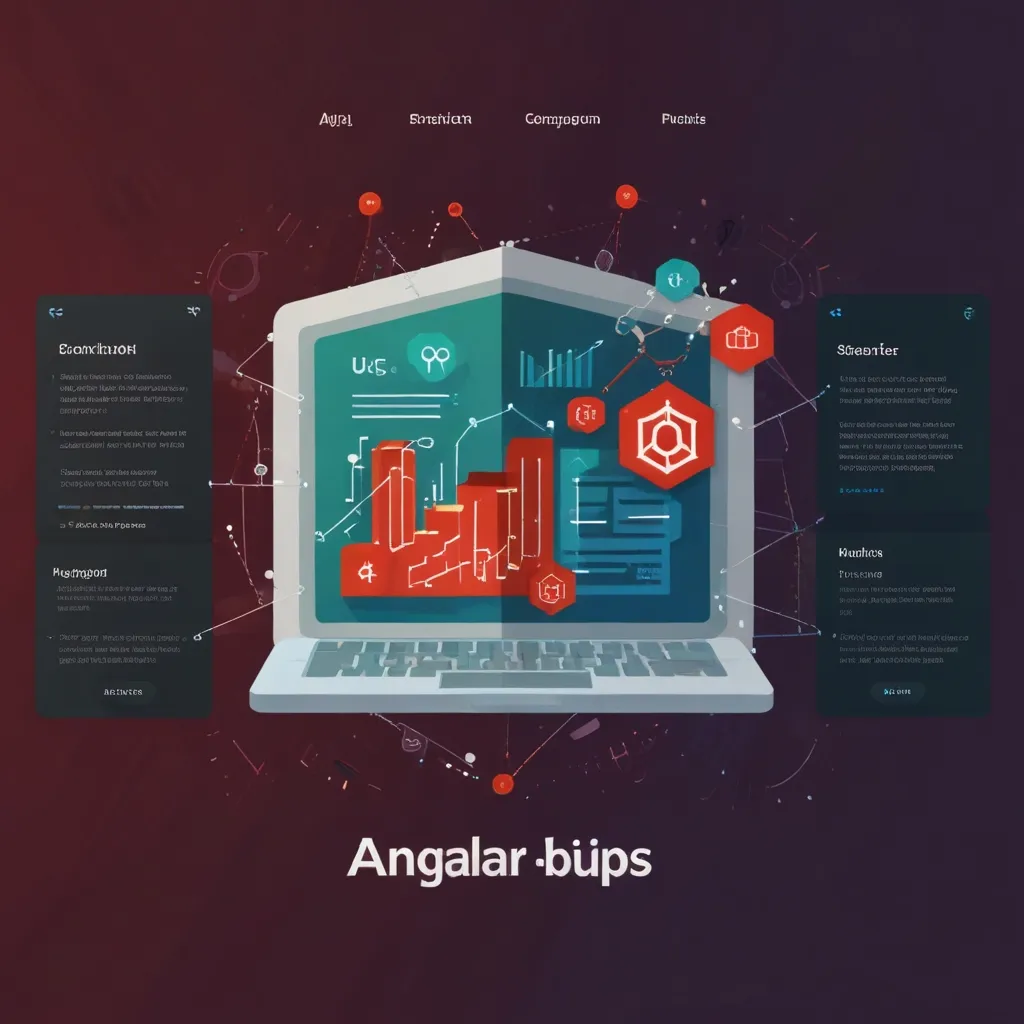In the ever-evolving landscape of web development, a framework that continues to stand out for its powerful and versatile capabilities is Angular. This open-source platform, written in TypeScript, has garnered a strong following among developers thanks to its robust features and ease of use. So, let’s dive in and explore why Angular might just be your next go-to framework for building dynamic single-page applications (SPAs).
So, what exactly is Angular? It’s not just another web framework; it’s a comprehensive platform for building client-side applications. Leveraging HTML and TypeScript, Angular allows developers to create highly interactive and responsive user interfaces. It’s particularly adept at crafting SPAs, which eliminate the need for full page reloads, offering users an uninterrupted, seamless experience.
One of the first things that make Angular stand out is its use of TypeScript. For those not in the know, TypeScript adds a layer of type safety to JavaScript, making it significantly easier to spot errors early in the development process. This translates into code that’s not only more maintainable but also scalable, which is a huge win for any developer.
Another big plus is Angular’s cross-platform capabilities. Whether you’re targeting Mac, Windows, Linux, or various web environments, Angular has you covered. By harnessing native OS APIs, Angular ensures that your application performs optimally across different ecosystems. Imagine building a desktop application for Windows and without breaking a sweat, deploying it on Mac and Linux as well. That’s the sort of flexibility Angular brings to the table.
Efficiency and productivity are at the heart of Angular’s design. Thanks to the Angular CLI (Command Line Interface), you can rapidly generate components, add tests, and even deploy your application. The straightforward syntax for templates further simplifies UI generation. Integrated Development Environments (IDEs) equipped with instant error reporting and intelligent code completion make the development process smoother. It’s like having an extra set of skilled hands working alongside you.
When it comes to providing full development support, Angular excels. It has tools that help developers create high-performance animations with minimal coding effort. The framework also places a strong emphasis on creating accessible applications. Resources and guides are available to ensure your app is usable by everyone, including ARIA-enabled methods for those who rely on assistive technologies.
Performance is another area where Angular shines. By converting templates into highly optimized code, Angular ensures near-instant rendering of the application’s first view, regardless of the backend environment. Be it .NET, Node.js, or PHP, Angular’s universal compatibility ensures that your application loads quickly and behaves consistently.
The versatility of Angular extends to a variety of use cases. For SPAs, Angular is nothing short of perfect. Think of apps like news feeds or social media platforms that need to constantly update without reloading the entire page. Angular’s ability to handle complex functionalities seamlessly makes it an ideal choice for these types of applications.
Business-focused applications also benefit greatly from Angular’s robust capabilities. Whether it’s a project management tool, ERP system, or order management software, Angular provides the tools to build highly interactive and maintainable interfaces. Companies like Upwork and ClickUp have already shown what’s possible with this powerful framework.
Then there are Progressive Web Apps (PWAs), which combine the best of web and mobile apps. Features like offline access and native app-like experiences are well-supported by Angular. Caching strategies and background data synchronization functionalities make sure users have a smooth experience even when they’re offline.
E-commerce platforms demand a seamless user experience with features like dynamic product listings and smooth checkouts. Angular’s built-in tools make it a strong candidate for developing online marketplaces. Its ability to handle complex operations while ensuring maintainability makes it a preferred choice for these applications.
Public sector websites, such as those for banking, government services, healthcare, and education, require a robust and secure framework. Angular checks all the boxes when it comes to reliability and security, making it an ideal solution for these critical applications.
Wondering about real-world examples? Consider Forbes, which uses Angular to provide smooth page content updates for a seamless user experience. ClickUp utilizes Angular to deliver a responsive interface teeming with rich functionality. Even Gmail employs Angular’s capabilities for its offline access features, which allows users to manage their emails efficiently even without internet connectivity.
So, why should anyone choose Angular? For one, its component-based architecture simplifies the management and maintenance of complex applications, a refreshing change from the traditional MVC structure. Next, Angular supports two-way data binding, which keeps the UI and data model in sync, simplifying the development process while enhancing user experience. Finally, dependency injection in Angular ensures that if you alter one component, other related components are automatically updated, resulting in more maintainable code and reduced development time.
To wrap things up, Angular is a powerful tool designed for building dynamic single-page applications. Its key features, including cross-platform development, efficiency, full development support, and performance, make it a versatile choice for various applications. Be it business tools, e-commerce platforms, or public sector websites, Angular provides the capabilities needed to deliver a high-quality, interactive user experience. Its robust security features and reliability only add to its appeal, making it no surprise that many top companies rely on Angular for their web development needs. If you’re planning to build a top-notch web application, Angular is definitely worth considering.






